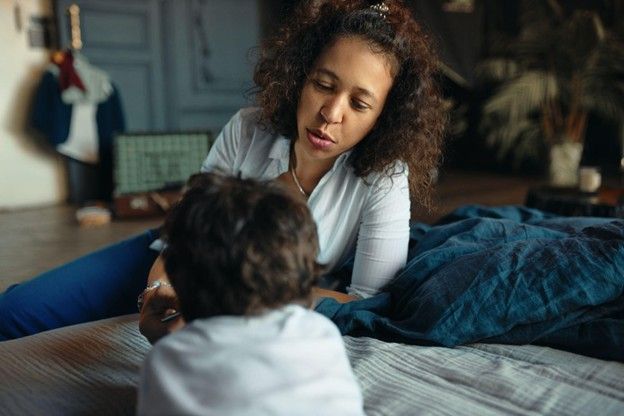L -aPs, Inc.
How To Know If Your Anxiety IS Hurting Your Kids - Picture by Freepik

Sometimes it sneaks in through silence. The way you sigh, the grip on the steering wheel, the blank stare over dinner. Children are quieter than you think when they’re watching, and louder than you expect when they start to carry what you won’t name. You worry because it feels responsible, even righteous. But anxiety doesn’t always stay in one body. It spills, and your child might be wading in it already.
Recognizing the Signs
It starts small. Your child hesitates before school, clings tighter than usual, and asks if you’re okay more than they used to. These may seem like quirks or phases, but they could be signs that
our anxiety is affecting them more than we care to admit. They mirror tension like glass reflects light, without distortion. You don’t have to be falling apart for your anxiety to seep into the room. Even managed fear has a scent, and kids have sharp noses for unspoken stress.
The Ripple Effect
Research doesn’t mince words. Persistent parental anxiety has been linked to cognitive and emotional disruptions in childhood development. According to one summary of parental anxiety and child development research, children with anxious caregivers often develop elevated stress responses themselves. It’s not a life sentence, but it can shape their worldview early. Safety becomes a question, not a foundation. Their emotional thermostat starts ticking to someone else’s temperature.
Technology’s Role
Phones are easy shields. You’re not ignoring them, you’re decompressing, you’re reading the news, you’re “just checking something.” But what they see is your face lit by a screen, not curiosity. Studies show that excessive parental use of technology rewires young minds, often in sync with feelings of neglect or disconnection. Even toddlers sense when they’ve been emotionally replaced by a glowing rectangle. You’re not a bad parent, but you’re missing moments that might’ve tethered their nervous systems to calm.
Stress in Kids
They won’t call it stress. They’ll say they feel sick, get headaches, hate school, hate themselves, or lash out. You might miss the clues unless you’re looking for monitoring for
signs of stress specifically. And even then, it’s easy to second-guess yourself. After all, aren’t kids supposed to be dramatic? But this isn’t a tantrum—it’s a weather system you helped create. One they’re living in without a raincoat.
Managing Parental Anxiety
You’re allowed to be anxious. The point isn’t to erase it, it’s to learn how to carry it without dropping pieces on the floor for your child to trip over. There are practical tips for coping with parental anxiety that don’t involve pretending you’re fine. Journaling, deep breathing, asking for help before you explode—these aren’t wellness clichés, they’re survival tools. Therapy isn’t indulgent, it’s protective gear. You don’t fix everything, but you model repair.
Career and Anxiety
Sometimes it’s not you, it’s your job. If your current work situation keeps lighting your nervous system on fire, that’s not a personal failure. It might be time to consider a new path. For example, if you work in nursing and want better working conditions, shifts, and pay, working toward earning an advanced practice nursing degree can position you for a more hands-on approach and see improved pay and hours. Regardless of your career track, online degree programs make it easier to handle parenting and work duties more easily. Sometimes healing starts with a professional pivot.
Building Resilience Together
This isn’t about blame, it’s about teamwork. Your child doesn’t need a flawless parent, just a present one.
They learn emotional agility by watching you bend without breaking. They’ll believe they’re allowed to be scared if they see you name your fears and still walk forward. There are ways to
help your child manage fears and anxieties without overwhelming either of you. Progress is slow, but it adds up fast when you’re consistent.
Your child will pick up the tone of your silence, the pace of your breath, the way your shoulders rise when someone asks, “Are you okay?” So let your recovery be audible. Let them hear you say, “I’m working on it.” Let them watch you try again tomorrow. Because if they see you choose healing, they’ll know it’s possible for themselves too. And that’s a legacy worth handing down.
Discover the transformative power of community support with L-aPs, Inc., where we connect lives, provide essential resources, and empower individuals to thrive in transitional times. Join us in making a difference today!



